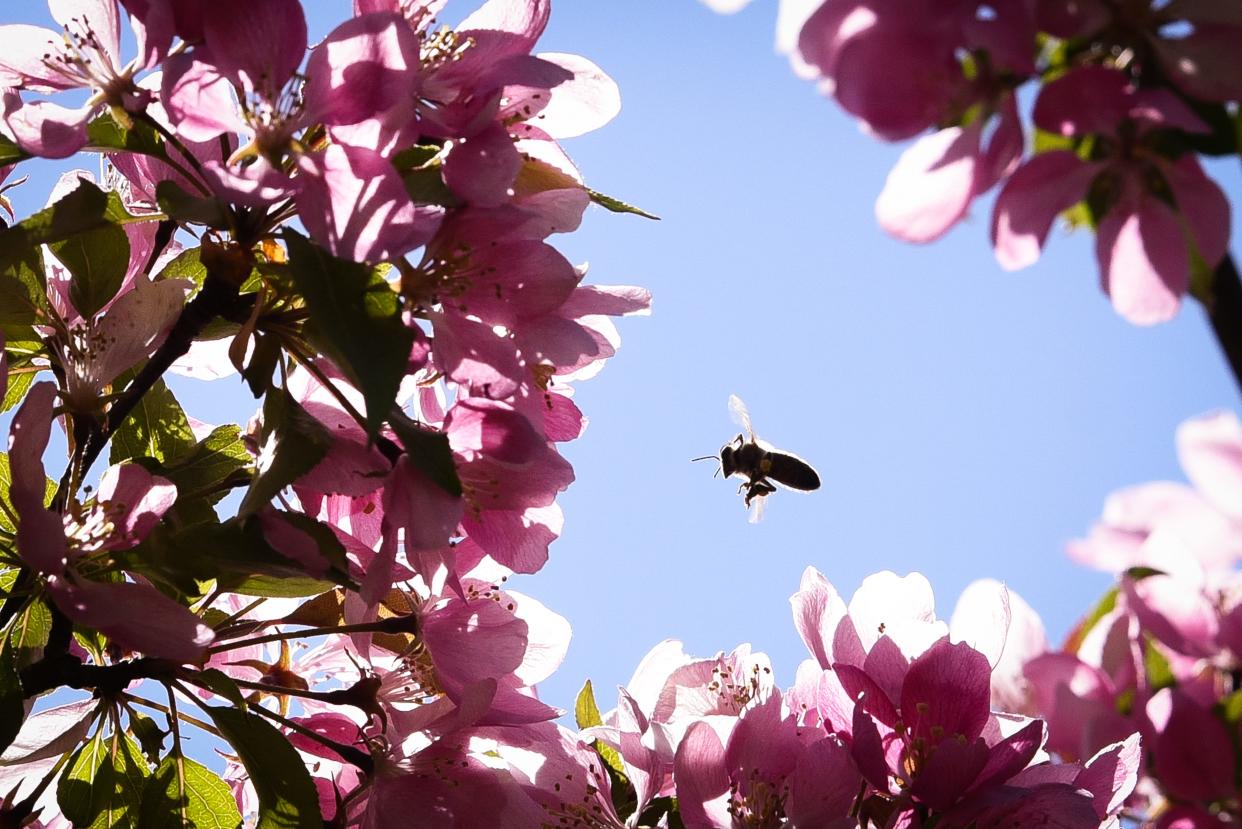The birds and bees of gardening: Make your yard pollinator friendly

In 2007, the U.S. Senate designated a week in June as National Pollinator Week to increase awareness of the importance of pollinators to food production.
This year, National Pollinator Week – Wings of Life is June 20-26. Pollinators are keystone species: they are a necessary component of sustaining life on earth for all species. About a third of the food on our plates is there because of pollinators.
Here are some tips on how you can make your yard more pollinator friendly.
Provide food all year
Plant a mix of flowering plants that provide blooms from early spring to late fall. Look to add native plants to your landscape. Grass lawns are deserts for pollinators; consider reducing your lawn footprint by converting part of it to a wildflower or native plant garden. For suggested annuals, perennials, shrubs and trees, see the plant list by visiting https://plantnative.org/rpl-nypanj.htm
More: Want your lawn to look awesome this year? Follow these tips
More: It's all about the right mulch when gardening, landscaping. Here are some tips
More: Gardening tip: Give leaf composting a try on your lawn, garden
Provide safe nesting sites
Habitats for pollinator nesting or egg laying include shrubs or tall grasses. Keep a brush pile, fallen branches, or leaves on the edge of your yard. Consider buying or making nesting houses.
Avoid the use of pesticides
If necessary, apply at night or very early before pollinators are active. Pollinators need you; birds, bats, bees, butterflies, certain insects, hummingbirds and other small mammals that pollinate plants keep our ecosystems sustainable. Let your yard support pollinator health. Get involved and learn more by visiting The Pollinator Partnership website at https://www.pollinator.org/ To see how to create your own pollinator habitats visit https://cals.cornell.edu/pollinator-network/conservation/creating-pollinator-habitats
Cornell Cooperative Extension Oneida County: Home and Garden questions can be emailed to homeandgarden@cornell.edu or call 315-736-3394, press 1 and then ext. 333. Leave your question name and number. Questions are answered weekdays 8 a.m. to 4 p.m. Also, visit our website at http://cceoneida.com/ Or phone 315-736-3394, Press 1 and then ext. 100.
This article originally appeared on Observer-Dispatch: Gardening: Tips to make your yard more pollinator friendly

